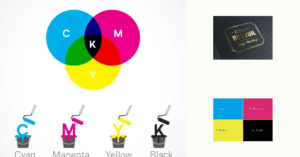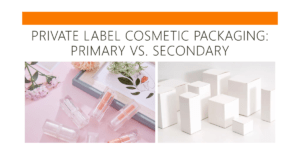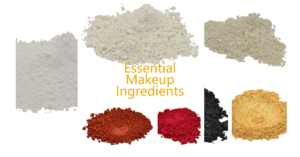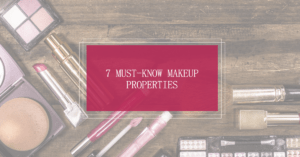In this comprehensive guide, I will provide you with the key steps and considerations for choosing a private label cosmetics partner manufacturer or cosmetics supplier. Whether you are a beauty entrepreneur or an established cosmetic brand, finding a reliable and high-quality cosmetic manufacturing company is crucial for the success of your products. In this article, we will cover everything from understanding private label cosmetics to evaluating manufacturers based on quality standards, customization options, financial aspects, ethical and legal considerations, partnership dynamics, case studies, and more. By the end of this article, you will have a clear understanding of how to select a private label cosmetics partner that aligns with your brand’s needs and goals.
Key Takeaways:
- Choosing a Private Label Cosmetics Partner manufacturer is essential for the success of your beauty products.
- Understanding private label cosmetics and the market trends is the first step in the process.
- Identifying your brand’s needs and goals, as well as understanding your target market, is crucial pre-selection considerations.
- Evaluating manufacturers based on quality standards, customization options, manufacturing capacity, and scalability is vital.
- Considering the financial aspects, ethical and legal considerations, and partnership dynamics are essential in the selection process.
Part 1: Understanding Private Label Cosmetics
In this section, we will explore the concept of private label cosmetics and its significance in the beauty industry. I will explain what private label cosmetics are and how they differ from other manufacturing options. Additionally, we will delve into the current growth and trends in the private label cosmetics market, offering insights into the market’s potential and the competitive landscape.
What are Private Label Cosmetics?
Private label cosmetics refer to beauty products that are manufactured by one company and sold under another company’s brand. In this arrangement, the manufacturer produces the cosmetics according to the specifications and requirements of the brand owner, who then markets and sells the products as their own.
Private label cosmetics provide brands with the opportunity to offer a wide range of beauty products without the need for costly in-house manufacturing facilities. It allows brands to focus on product innovation, marketing, and building their brand image.
The Growth and Trends in the Private Label Cosmetics Market
The private label cosmetics market has witnessed significant growth in recent years, driven by several factors. One key factor is the increasing demand for personalized and customized beauty products among consumers. Brands are leveraging the private label manufacturing model to cater to this demand by offering unique formulations, packaging, and branding options.
Another trend in the private label cosmetics market is the rising popularity of natural and organic beauty products. Consumers are becoming more conscious of the ingredients used in their cosmetics and are actively seeking out brands that offer clean and sustainable options. Private label manufacturers are adapting to this trend by providing eco-friendly and cruelty-free formulations.
| Table: Private Label Cosmetics Market Growth and Trends |
|---|
| The private label cosmetics market is expected to reach a value of $785.4 billion by 2025, growing at a CAGR of 7% during the forecast period. |
| The demand for private label skincare and makeup products is increasing, driven by the desire for personalized beauty routines and the influence of social media. |
| Private label cosmetics offer cost-effective solutions for brands to enter the market and differentiate themselves from mass-produced products. |
| The COVID-19 pandemic has further accelerated the demand for private label cosmetics, as consumers prioritize hygiene and safety. |
As the private label cosmetics market continues to grow, brands have the opportunity to tap into this fast-growing sector and establish their presence in the beauty industry. By partnering with a reputable private label cosmetics manufacturer, brands can bring their unique product ideas to life, offering customers high-quality and customized beauty products.
Explanation What Is Contract Manufacturing And White Label Cosmetics
What Is Contract Manufacturing
Contract manufacturing is a type of manufacturing process in which a company outsources the production of its products to another company. The term “contract manufacturing” can refer to a variety of different manufacturing processes, including the production of electronics, automotive parts, and medical devices.
What Is White Label Cosmetics
White label cosmetics are products that are produced by one company and then sold under another company’s brand. Typically, the private label company will not have their own brand, but instead will produce products for other companies to sell under their own brands. This allows companies to produce high quality products without the expense of branding and marketing.
If you’re looking to get into the white label cosmetics business, or are simply looking for a cheaper alternative to branded products, then private label beauty products are a great option. Keep these things in mind when looking for a private label supplier, and you’ll be sure to find a quality supplier that can provide you with the products you need.
Part 2: Pre-Selection Considerations For Choosing a Private Label Cosmetics Partner
Identifying Your Brand’s Needs and Goals
Before embarking on the journey of selecting a private label cosmetics manufacturer, it is crucial to have a clear understanding of your brand’s needs and goals. Take the time to define your brand identity, the products you want to offer, and how you want to position yourself in the market. Consider the following:
- What is your brand’s unique selling proposition (USP)?
- What are your core values and mission?
- What kind of products do you want to develop?
- What are your short-term and long-term goals?
- What is your target market?
By answering these questions, you will gain clarity on your brand’s direction and requirements. This will help you find a private label cosmetics manufacturer that aligns with your vision.
Understanding Your Target Market
Understanding your target market is essential when choosing a private label cosmetics manufacturer. Conduct thorough market research to gain insights into your potential customers’ preferences, demographics, and purchasing behavior. Analyze the following:
- Who are your target customers?
- What do they value in cosmetic products?
- What trends are popular in the cosmetics industry?
- What are your competitors doing?
By understanding your target market, you can identify the specific needs and preferences that your private label cosmetics manufacturer should cater to. This will ensure that your products resonate with your audience and stand out in the market.
Part 3: Manufacturer Evaluation Criteria
When it comes to selecting a private label cosmetics manufacturer, thorough evaluation is crucial. In this section, we will explore the key criteria to consider in order to make an informed decision. Evaluating the manufacturer based on quality standards and certifications ensures that your products meet industry benchmarks and resonate with your target market. Assessing the range of products and customization options offered by the manufacturer allows you to create a unique and tailored cosmetic line. Additionally, evaluating the manufacturer’s manufacturing capacity and scalability ensures that they can handle your brand’s growth requirements. Let’s dive deeper into each evaluation criterion.
Quality Standards and Certifications
Manufacturers that adhere to strict quality standards and hold relevant certifications are essential for maintaining the reputation and credibility of your brand. Look for certifications such as GMPC,ISO, organic, cruelty-free, and eco-friendly labels, depending on your brand values and market positioning. These certifications not only convey your commitment to ethical practices but also resonate with conscious consumers who prioritize sustainability and animal welfare. Consistently delivering high-quality products will enhance customer trust and loyalty.
Range of Products and Customization Options
Having a diverse range of products and customization options allows you to create a cosmetic line that stands out in the market. A manufacturer with a wide range of products can fulfill your brand’s needs for various cosmetic categories, such as private label makeup products, skincare products, etc, ensuring a comprehensive product offering. Additionally, the ability to customize your products, whether it’s through unique cosmetic formulation, cosmetic packaging designs, or product attributes, allows you to create a distinct cosmetic branding identity and cater to your target market’s preferences.
Manufacturing Capacity and Scalability
Assessing the manufacturer’s cosmetics manufacturing capacity and scalability is crucial, especially if you have plans for future growth. A manufacturer with sufficient capacity ensures they can efficiently produce your desired quantities within reasonable lead times. Moreover, considering scalability is important to accommodate your brand’s growth and expansion in the future. A manufacturer that can scale production without compromising quality and consistency is an ideal long-term partner for your brand.
| Criteria | Importance |
|---|---|
| Quality Standards and Certifications | High |
| Range of Products and Customization Options | High |
| Manufacturing Capacity and Scalability | High |
Note: This table represents the importance of each evaluation criterion when choosing a private label cosmetics manufacturer. The high importance signifies that these criteria should be given significant consideration during the evaluation process.
Part 4: Financial Aspects
In order to select the right private label cosmetics manufacturer for your brand, it is essential to consider the financial aspects involved. This section will discuss the cost considerations related to pricing and minimum order quantities. We will also explore the importance of understanding the financial health of the manufacturer to ensure long-term reliability and sustainability.
Cost Considerations: Pricing and Minimum Order Quantities
Pricing and minimum order quantities are key factors to consider when choosing a private label cosmetics manufacturer. Understanding the cost structure and pricing models of different manufacturers is essential in optimizing your expenses and ensuring profitability for your brand.
When evaluating pricing, it is important to delve into the specific components that make up the overall cost. This can include factors such as raw material expenses, manufacturing processes, packaging, labeling, and shipping. By thoroughly examining these elements, you can gain a comprehensive understanding of the pricing structure and make informed decisions.
Minimum order quantities (MOQs) play a significant role in the financial viability of your private label cosmetics venture. Manufacturers often have set MOQs, which represent the minimum number of units or products you need to purchase per order. MOQs can vary based on product complexity, customization options, and the manufacturer’s production capabilities.
It is crucial to strike a balance between meeting the manufacturer’s MOQ requirements and your brand’s demand. If the MOQs are too high and exceed your projected sales volume, it may result in excess inventory and financial strain. On the other hand, choosing a manufacturer with low MOQs can provide flexibility, especially for new or smaller brands looking to test their products in the market.
Understanding the Financial Health of the Manufacturer
Assessing the financial health of a private label cosmetics manufacturer is essential for establishing a reliable partnership. A financially stable manufacturer will have the resources and capacity to meet your brand’s production needs and ensure consistent product quality.
When evaluating the financial health of a manufacturer, consider factors such as their profitability, liquidity, and overall financial stability. Look for indicators of a strong financial position, such as positive cash flow, low debt-to-equity ratio, and consistent growth. A financially healthy manufacturer is more likely to invest in research and development, production capabilities, and quality control measures.
Performing due diligence in understanding the financial health of the manufacturer can help mitigate risks and ensure a long-term partnership. Engage in open and transparent conversations with the manufacturer about their financial standing, business practices, and track record. This will allow you to gauge their commitment to quality and determine their ability to support your brand’s growth aspirations.

Part 5: Ethical and Legal Considerations
In order to ensure a responsible and sustainable private label cosmetics partnership, it is essential to consider ethical and legal aspects. Upholding high ethical standards and complying with industry regulations not only protects your brand’s reputation but also contributes to the overall integrity and safety of your products. In this section, I will discuss two key areas of focus: ethical sourcing and sustainability practices, as well as legal compliance and safety regulations.
Ethical Sourcing and Sustainability Practices
Private label cosmetics brands have a responsibility to prioritize ethical sourcing and embrace sustainability practices. By selecting a manufacturer that implements environmentally-friendly and socially responsible manufacturing processes, you can align your brand with ethical considerations. Ethical sourcing involves ensuring that the ingredients used in your products are obtained responsibly, without causing harm to the environment or violating human rights. Sustainability practices, on the other hand, encompass initiatives such as using renewable resources, reducing waste, and minimizing the carbon footprint. By partnering with a manufacturer that is committed to ethical sourcing and sustainability practices, you can enhance your brand’s image and appeal to eco-conscious consumers.
Navigating Legal Compliance and Safety Regulations
Complying with legal regulations and safety standards is imperative in the cosmetic industry. From product formulation to packaging and labeling, there are numerous legal requirements that must be met to ensure consumer safety and regulatory compliance. It is crucial to partner with a manufacturer that is well-versed in these regulations and has a robust quality control system in place. This includes adhering to guidelines regarding product testing, ingredient safety, labeling accuracy, and overall manufacturing practices. By navigating legal compliance and safety regulations alongside your chosen manufacturer, you can confidently bring your private label cosmetics to market while meeting all necessary requirements.
Part 6: Partnership Dynamics
Building a successful partnership with your private label cosmetics manufacturer is essential for long-term success. In this section, I will explore the dynamics of effective communication and customer service between brands and manufacturers. We will also discuss the importance of reliable lead times and delivery schedules to ensure smooth operations. Additionally, I will emphasize the significance of manufacturer support for marketing and branding efforts.
Communication and Customer Service
Clear and timely communication is the foundation of a strong partnership. When working with a private label cosmetics manufacturer, it’s crucial to have open lines of communication to discuss product specifications, changes, and any concerns that may arise. Effective communication fosters collaboration and ensures that both parties are aligned on expectations and requirements. Responsiveness and the ability to address customer queries and issues promptly are also vital aspects of exceptional customer service.
Lead Times and Delivery Schedules
Reliable lead times and delivery schedules are crucial for maintaining a steady supply chain and meeting customer demand. A trustworthy private label cosmetics manufacturer understands the importance of delivering products on time. They should have efficient production processes in place, along with realistic lead times that meet the required timelines. By adhering to delivery schedules, manufacturers demonstrate professionalism and reliability.
Support for Marketing and Branding
A private label cosmetics partnership goes beyond manufacturing. Your manufacturer should provide support for your marketing and branding efforts to help you promote your products successfully. This can include assistance in designing packaging that reflects your brand identity, providing marketing materials, and offering guidance on effective marketing strategies. By collaborating with a manufacturer that offers marketing support, you can enhance your brand’s visibility and reach in the market.

Part 7: Case Studies and Success Stories
In this section, we will delve into real-life case studies and success stories of brands that have successfully partnered with private label cosmetics manufacturers. By analyzing these partnerships, we can gain valuable insights into their strategies, the challenges they faced, and the key takeaways that contributed to their success.
Through the examination of case studies, we can uncover the approaches and tactics employed by these brands to establish fruitful collaborations with private label cosmetics manufacturers. By understanding their journeys, we can learn from their achievements and avoid common pitfalls in the selection process.
Analyzing Successful Partnerships
By analyzing successful partnerships, we can unearth the ingredients that lead to a mutually beneficial relationship between brands and private label cosmetics manufacturers. These case studies provide us with a wealth of knowledge and actionable insights, allowing us to discover the winning strategies, best practices, and effective communication channels that drove their success.
Through a thorough analysis of these successful collaborations, we can identify the key factors that contributed to their achievements, such as aligning brand values, leveraging each other’s expertise, and maintaining open lines of communication. By understanding the dynamics of these partnerships, we can apply these learnings to our own selection process and enhance the chances of establishing a successful collaboration.
Learning from Common Pitfalls
In addition to studying success stories, it is equally important to learn from common pitfalls that brands may encounter when selecting a private label cosmetics manufacturer. By understanding the challenges faced by others, we can proactively avoid potential roadblocks and make informed decisions.
Common pitfalls may include issues with product quality, communication breakdowns, misaligned values, lack of flexibility, or inadequate capacity to meet growing demands. By being aware of these potential pitfalls, we can develop strategies to mitigate risks and set realistic expectations when choosing our manufacturing partner.
Part 8: Additional Services and Support
Apart from manufacturing capabilities, private label cosmetics manufacturers offer a range of additional services and support to enhance your brand’s success. These value-added services include training programs, marketing support, product development assistance, after-sale support, and relationship management. Taking advantage of these services can significantly benefit your business, ensuring a strong and mutually beneficial partnership with your chosen manufacturer.
Additional Services: Training, Marketing, and Product Development
Private label cosmetics manufacturers often provide training programs designed to educate and empower their partners. These programs can encompass various aspects of the cosmetic industry, such as formulation techniques, market trends, packaging design, and regulatory compliance. By participating in these training programs, you can expand your knowledge and skills, enabling you to make informed decisions and stay at the forefront of the beauty industry.
Furthermore, manufacturers may offer marketing support to help you effectively promote your private label cosmetics. This support can include assistance with branding strategies, digital marketing campaigns, social media management, and marketing collateral design. Collaborating with the manufacturer’s marketing team can be instrumental in reaching your target audience and increasing brand visibility.
Additionally, manufacturers can provide product development assistance to help you create innovative and competitive cosmetic products. They can offer expertise in formulation, ingredient sourcing, packaging design, and product testing. Leveraging their knowledge and experience in product development can help you stay ahead of the market, meet consumer demands, and create a unique product range.
After-Sale Support and Relationship Management
After-sale support is an essential aspect of a successful partnership with a private label cosmetics manufacturer. This support includes timely and efficient order fulfillment, prompt responses to inquiries or concerns, and assistance with logistics and inventory management. A manufacturer that prioritizes after-sale support ensures that your brand’s operations run smoothly and fosters a positive customer experience.
Furthermore, relationship management plays a crucial role in building a long-lasting and fruitful partnership. Manufacturers who prioritize relationship management maintain open lines of communication and offer personalized support and guidance. They work collaboratively with you to address any challenges, seize opportunities for growth, and strengthen the overall partnership.
When selecting a private label cosmetics manufacturer, considering these additional services and support is paramount to the success of your brand. By leveraging the training programs, marketing assistance, product development expertise, after-sale support, and relationship management capabilities of your manufacturer, you can elevate your cosmetic business to new heights.

Part 9: The Selection Process Of Choosing a Private Label Cosmetics Partner
The selection process of a private label cosmetics manufacturer can be complex and time-consuming. To simplify your decision-making process, I will provide you with a step-by-step guide that will streamline your efforts to choose the right manufacturer for your private label cosmetics. By following these steps, you can ensure that your chosen manufacturer aligns with your brand’s needs and goals.
Step-by-Step Guide to Choosing a Private Label Cosmetics Partner
- Define your requirements: Start by clearly defining your requirements for your private label cosmetics. Consider factors such as product range, formulation, packaging, order quantities, delivery timelines, and pricing.
- Conduct initial research: Begin your research by identifying potential manufacturers who specialize in private label cosmetics. Collect information about their capabilities, experience, certifications, and specializations.
- Shortlist potential manufacturers: Based on your research, create a shortlist of manufacturers that meet your requirements and align with your brand values. Consider factors such as manufacturing capacity, product quality, and reputation.
- Evaluate proposals: Request proposals from the shortlisted manufacturers. Evaluate the proposals based on factors such as pricing, customization options, quality assurance processes, and lead times.
- Assess samples: Request samples from the manufacturers to evaluate the quality and suitability of their products. Test the samples thoroughly and assess them based on your brand standards.
- Visit the facilities: If possible, schedule visits to the facilities of the manufacturers on your shortlist. This will give you firsthand experience of their production processes, quality control measures, and overall operational standards.
- Check references and reviews: Reach out to the manufacturers’ references and read reviews from other brands who have worked with them. This will provide insights into their reliability, responsiveness, and overall performance.
- Negotiate terms: Once you have narrowed down your options, negotiate the terms and conditions with the selected manufacturers. Discuss pricing, minimum order quantities, turnaround times, and any additional services or support they can offer.
- Make the final selection: Based on the evaluation and negotiations, make the final decision and choose the manufacturer that best meets your requirements, aligns with your brand values, and offers competitive pricing and quality.
Tools and Resources for Manufacturer Research
When conducting research on potential private label cosmetics manufacturers, it is beneficial to leverage various tools and resources to gather information and make informed decisions. Here are some valuable tools and resources that can assist you in your manufacturer research and decision-making process:
- Online directories and databases: Utilize online directories and databases specific to the cosmetic industry to find a comprehensive list of private label cosmetics manufacturers.
- Trade shows and exhibitions: Attend trade shows and exhibitions dedicated to the beauty and cosmetics industry. These events provide opportunities to network with manufacturers, learn about their offerings, and establish valuable connections.
- Industry forums and communities: Engage in industry forums and communities to seek recommendations and insights from other beauty entrepreneurs and cosmetic brands. This can help you discover reputable manufacturers and gain valuable firsthand experiences.
- Supplier directories: Explore supplier directories available online or in trade publications to discover manufacturers specializing in private label cosmetics.
By utilizing these tools and resources, you can conduct thorough research, gather essential information, and make well-informed decisions when choosing a private label cosmetics manufacturer.
Tip
There are a few things to keep in mind when looking for a private label supplier. Firstly, it’s important to find a supplier that has experience in manufacturing cosmetics. This will ensure that the products are of high quality and meet all safety and regulatory standards. Secondly, it’s important to find a supplier that offers a wide range of products. This will give you the ability to offer a variety of products to your customers, and also allows you to experiment with new products without incurring too much risk. Finally, it’s important to find a supplier that has a good reputation. This will ensure that you’re getting products from a company that is reliable and trustworthy.
Image: Private Label Cosmetics Selection Process
Part 10: Maintaining a Successful Relationship
Once you have chosen a private label cosmetics manufacturer, it’s essential to focus on maintaining a successful and productive partnership. Effective ongoing partnership management is crucial for the long-term success of your brand and products. Here are some best practices to ensure a strong and thriving relationship:
Best Practices for Ongoing Partnership Management
- Effective Communication: Maintain open and transparent communication channels with your manufacturer. Regularly discuss goals, expectations, and any potential issues or concerns that may arise. Clear and timely communication is vital for a productive partnership.
- Regular Performance Evaluations: Conduct periodic performance evaluations to assess the manufacturer’s quality of products, adherence to timelines, and overall satisfaction. This evaluation process helps identify areas of improvement and ensures that both parties are meeting their obligations.
- Continuous Improvement: Encourage a culture of continuous improvement with your manufacturer. Collaborate on finding innovative solutions, optimizing processes, and enhancing product quality. Continuously review and refine your manufacturing and business strategies to adapt to evolving market needs.
Adapting to Market Changes and Evolving Needs
In the dynamic cosmetics industry, market changes and evolving consumer needs are inevitable. To stay ahead of the competition and meet customer expectations, it is crucial to adapt and respond quickly. Here are some strategies to help you adapt to market changes and evolving needs:
- Market Research: Stay informed about current market trends, emerging technologies, and evolving consumer preferences. Conduct regular market research to identify new opportunities and anticipate changes that may impact your products.
- Flexibility and Customization: Work closely with your manufacturer to ensure they can quickly adjust to changes and offer customization options. Being able to introduce new formulations, packaging designs, or product variations allows you to meet evolving consumer demands and stay competitive.
- Consumer Engagement: Listen to your customers and engage with them through surveys, feedback forms, and social media platforms. By understanding their needs and preferences, you can adapt your product offerings and marketing strategies accordingly.
By implementing these best practices for ongoing partnership management and adapting to market changes, you can foster a successful and long-lasting relationship with your private label cosmetics manufacturer. This collaboration will enable you to consistently deliver high-quality products that meet the evolving needs of your target market.
Conclusion
In conclusion, selecting the right private label cosmetics manufacturer is a crucial decision that can significantly impact the success of your beauty brand. Throughout this comprehensive guide, we have explored the key considerations and steps involved in finding the perfect manufacturing partner.
Recap of Key Points For Choosing a Private Label Cosmetics Partner
Firstly, understanding private label cosmetics and the current trends in the market is essential. By identifying your brand’s needs and goals, as well as understanding your target market, you can ensure alignment with your manufacturer selection. Evaluating factors such as quality standards, customization options, manufacturing capacity, and financial aspects will help you make an informed decision.
Furthermore, ethical and legal considerations should not be overlooked. You must prioritize ethical sourcing and sustainability, while also ensuring compliance with industry regulations and safety standards. Building a strong partnership with your manufacturer through effective communication and customer service, as well as receiving the necessary support for marketing and branding, is crucial for long-term success.
Finally, the selection process requires careful research, evaluation, and consideration of various factors. Utilizing the right tools and resources can streamline your decision-making process and help you find the most suitable manufacturer for your brand.
Final Thoughts on Choosing a Private Label Cosmetics Partner
Selecting a private label cosmetics manufacturer is a strategic decision that can elevate your beauty brand’s success. By partnering with a manufacturer that aligns with your brand values, offers high-quality products, and provides excellent support, you can differentiate yourself in the competitive cosmetic market.
Remember, the right manufacturer will not only help you create superior products but also become a trusted partner in your journey towards building a successful beauty brand. Take the time to evaluate your options, conduct thorough research, and consider all the key factors discussed in this guide. By doing so, you will be well-equipped to make an informed decision and forge a fruitful partnership that propels your brand towards growth and prosperity.
FAQ
What are Private Label Cosmetics?
Private label cosmetics are beauty products that are manufactured by one company and sold under another company’s brand name. These products are customizable and allow businesses to create their own unique cosmetic line without investing in manufacturing facilities.
What is the Growth and Trends in the Private Label Cosmetics Market?
The private label cosmetics market is experiencing significant growth and evolving trends. With the increasing demand for personalized beauty products, consumers are seeking unique and niche cosmetic offerings. The market is also witnessing a surge in sustainable and clean beauty products, as well as an emphasis on ethical sourcing and cruelty-free formulations.
How do I Identify My Brand’s Needs and Goals?
It is crucial to identify your brand’s needs and goals before selecting a private label cosmetics manufacturer. Determine your product range, brand identity, and target market. Conduct market research to understand your audience and competitors, and align your manufacturer selection with your branding strategy.
Why are Quality Standards and Certifications Important for a Manufacturer?
Quality standards and certifications ensure that your private label cosmetics meet the highest industry standards. Certifications such as GMPC,ISO, organic, cruelty-free, and eco-friendly labels not only reflect your brand’s commitment to quality, but also enhance your reputation and credibility in the market.
How do I Evaluate a Manufacturer’s Range of Products and Customization Options?
Evaluating a manufacturer’s range of products and customization options is essential to ensure that you have flexibility and uniqueness in your cosmetic line. Look for a manufacturer who can offer various formulations, textures, shades, and packaging options that align with your brand’s vision and target market.
What Financial Aspects Should I Consider when Selecting a Manufacturer?
When choosing a private label cosmetics manufacturer, consider the cost considerations related to pricing and minimum order quantities. Understand different pricing models and cost structures to optimize your expenses. Additionally, evaluate the financial health of the manufacturer to ensure long-term reliability and sustainability.
Why are Ethical Sourcing and Sustainability Practices Important in the Cosmetic Industry?
Ethical sourcing and sustainability practices are essential for responsible manufacturing. Consumers are increasingly conscious of environmentally-friendly and socially responsible products. By partnering with a manufacturer that prioritizes ethical sourcing and sustainable practices, you not only meet customer expectations but also contribute to a positive brand image.
What are the Key Considerations for Partnership Dynamics with a Manufacturer?
Effective communication and customer service are vital for a successful partnership. Seek a manufacturer who can offer clear and timely communication, responsiveness, and the ability to address concerns. Reliable lead times and delivery schedules are also crucial to ensure smooth operations. Additionally, look for manufacturers who can support your marketing and branding efforts through packaging design and promotional materials.
Can You Provide Case Studies and Success Stories of Brands that Partnered with Private Label Cosmetics Manufacturers?
Yes, we have analyzed several successful partnerships in the private label cosmetics industry. By studying these case studies, you can gain insights and learn from their strategies, challenges, and key takeaways. Additionally, we will discuss common pitfalls to avoid when selecting a manufacturer and share insights on how to navigate potential obstacles.
What Additional Services and Support can a Private Label Cosmetics Manufacturer Offer?
Many private label cosmetics manufacturers provide additional services and support. These can include training programs, marketing support, and product development assistance. After-sale support and relationship management are also crucial for building a strong and mutually beneficial partnership.
What is the Selection Process for Choosing a Private Label Cosmetics Partner Manufacturer?
The selection process involves defining your requirements, conducting research, shortlisting potential manufacturers, evaluating proposals, and making the final selection. Our step-by-step guide will walk you through each stage and provide you with valuable tools and resources to assist you in your decision-making process.
How can I Maintain a Successful Relationship with my Private Label Cosmetics Manufacturer?
Maintaining a successful partnership requires effective communication, regular performance evaluations, and continuous improvement. Adapting to market changes and evolving consumer needs is also crucial. By following best practices for ongoing partnership management, you can ensure the long-term success of your products and brand.
What are the Key Points to Recap about Choosing the Right Private Label Cosmetics Manufacturer?
Choosing the right private label cosmetics manufacturer involves considering factors such as brand needs and goals, quality standards and certifications, range of products and customization options, financial aspects, ethical and legal considerations, partnership dynamics, and additional services and support. The selected manufacturer should align with your brand’s vision, provide high-quality products, and offer the necessary support for your business’s growth and success.






